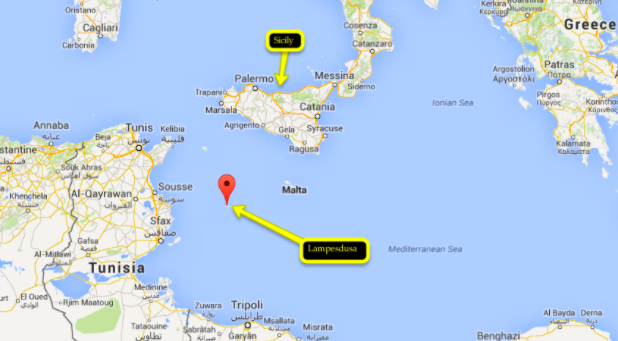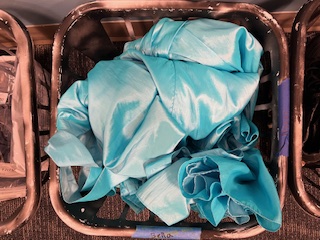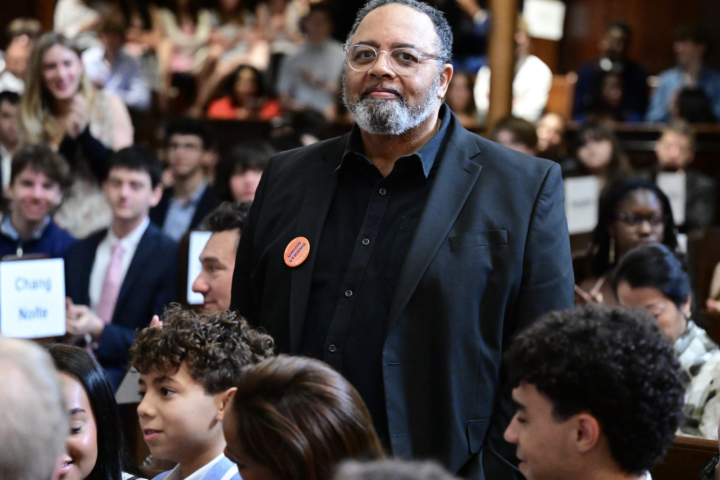Lampedusa is an Italian island that lies far off the coast of Italy, closer to Malta, and is less than 100 miles from the coast of Northern Africa. Given its proximity to the African coast, the island has historically acted as a “magnet” for sailors, merchants, people seeking refuge from gales and migrants and refugees escaping persecution or unsafe conditions in their countries of origin. This year, the small island reached a record high in migrants arriving, acting as a window into migration crises around the world. In an age of climate change and anxiety, climate refugees and political exiles, people living on the fringes of crisis zones, Lampedusa has become a hub.
Italy is a country rich in history and culture. The “boot” shaped peninsula in southwestern Europe has been home to history’s most famous emperors, artists and musicians. The current constitution, reestablished in 1948, after the collapse of the dictatorship of Mussolini and the end of World War II, brought Italy out of fascism and turned it into a democratic republic.
The COVID-19 pandemic has had a severe impact on the nation, with large outbreaks of the virus in early 2020. Italy has a relatively old population, with 22.8% of people over 65 as of December 2020. Early strains of COVID-19 were shown to have a worse impact on older individuals, therefore the rates of deaths from COVID-19 were unusually high. The country’s vaccination efforts have been effective, with 75.5% of the population vaccinated according to “Our World In Data.”
Long before modern Italy was created (1861) Lampedusa was conquered, traded, sold, won and lost as part of the dynastic politics of the Mediterranean world. Ferdinand II, of the Kingdom of Naples, claimed it in 1843 and established it as a colony. The “risorgimento”(Italian unification and state building), absorbed it into a new constitutional monarchy called Italy. In the early 2000s, migrants began using the island as a landing place. Tens of thousands of migrants have passed through the island on their migration journeys.
In 2021, a record 35,000 migrants passed through the island asylum. To compare, about 20,000 arrived on the island last year. Dr. Craig Spencer (MD, MPH) is the Director of Global Health in Emergency Medicine at New York-Presbyterian/Columbia University. He is well known for his work with Doctors without Borders during the Ebola outbreak. He has shown immense strength and resilience throughout his career. Additionally, he worked “on a search and rescue boat in the Mediterranean in 2017 and 2018 providing medical care to migrants. It was always difficult and political. People drowned in the water, boats were being capsized.”
“Most of the migrants that we met had come from Libya, and I had met some people in Italy that had transited through Lampedusa,” Dr. Spencer said. He noted that most of the migrants he saw ended up in Sicily, a larger island off the coast of Italy.
Photo Credit: doctorswithoutborders.org
Northern Africa bleeds emigrants. The uptick in migrants coming to Lampedusa is correlated with a political crisis in Tunisia. In July of 2021, after violent outbursts against the Tunisian Government, the President of Tunisia announced the suspension of parliament, essentially proclaiming himself a dictator. Though this move was intended to stop political violence, this political shift exacerbated the economic and societal difficulties that were already brewing. With this immense economic decline in Tunisia, some migrants describe feeling as though there would be more hope in the European Union.
Chaos in Libya has also contributed to the migration problem. The ongoing crisis in Libya is part of the aftermath of the Arab Springs protests of 2011. The Libyan government has been very divided and violent since these protests, though the two main parties recently signed a ceasefire. The weak government has not been able to provide adequate resources, such as healthcare and electricity, to its citizens, leading many to flee to or through Lampedusa.
Some refugees come from as far away as Asia. Economic migrants and political refugees from Afghanistan fleeing as the post-war human rights crisis provoked by the Taliban overwhelmed the island in 2021.
A migrant’s journey is often extremely taxing. Officials on Lampedusa describe seeing burn scars and bruises on the bodies of many who come to the island.
Dr. Spencer also noted the physical suffering of migration. “There were a lot of physical manifestations. People have been held in detention centers, sometimes for months or longer.”
These experiences also visibly impacted mental health. “We also saw people who for months were held in horrible spaces and saw horrible things. They still suffered the mental health impacts of that. When they heard loud noises their adrenaline kicked in. They didn’t want to look us in the eyes because that was something that could have gotten them beaten in detention centers. Those were the people who were lucky enough to get out…” he said.
The health crises associated with migration are worsening as the COVID-19 pandemic is persisting. As a result, many migrants have tested positive for COVID-19, adding an extra strain on migrants and the immigration process.
According to Dr. Spencer, as a worker, “It was tough. In March 2020, and even earlier in February, boats started getting quarantined because of the concern around COVID. COVID was used as a way to prevent migrants from landing and being accepted into the asylum system in Italy, which is another challenge.”
However, “It’s not just specific to Italy, in the U.S, Title 42 has been used as a public health justification to prevent migration into the U.S, even though there is little public health justification to do so. At points where the U.S. is flooded with COVID cases, it’s laughable to say that we can’t have people come because of COVID–we have COVID basically everywhere,” he said.
The use of COVID-19 as xenophobic political tool has been a common theme around the globe. It has not only caused stigma around migration, but it has also made it difficult for migrants to share their stories and for the media to spread awareness. “COVID has also made it quite difficult to do research on migrant communities. COVID has taken up a lot of the news and taken away from the discussion on the challenge that migrants are facing,” Spencer said.
Several of these storylines have the potential to be major headlines, but they are overlooked due to pandemic stories around spiking cases and vaccine mandate protests.
The migrant and refugee communities, especially those coming from low-income countries, have been disproportionately affected by the virus. Dr. Spencer said, “We’ve seen how many of them have gotten COVID, do not have access to healthcare, and do not have access to vaccinations. The pandemic has had a huge impact on everyone, but particularly on migrants.”
As so many migrants have poured into Lampedusa this year, especially while the pandemic rages, many have also been deported. The migrant camp on Lampedusa was intended to hold less than 300 people. It has held many more inside this year, and with little room for social distancing.
Photo credit: The Guardian
Italy has called for help from other countries in the European Union but has gotten little support. This is likely, in part, due to the pandemic.
Dr. Spencer urges European nations to recall the history of migration and why the asylum system exists. “One thing that a lot of people recognize is that during WWII there were a huge number of Eastern Europeans and Greeks that escaped Europe and went and sought asylum in refugee camps in the Middle East.”
“Seventy to eighty years ago, it was Europeans that were the migrants. They set up refugee conventions based on their experiences so that others didn’t have to live that experience. Now with the tables turned, instead of Europeans being hosted in places like Aleppo, refugees from Aleppo are looking for asylum in places like Italy.”
Citizens on Lampedusa have grown frustrated with migrants arriving on the island. Officials with anti-immigrant opinions have recently been heavily supported by Lampedusa’s population. According to the BBC, Atillio Lucia, one representative of the League, a conservative anti-immigrant party, “They should be helped in their own countries, not come here where authorities spend millions on them but let us die.”
Once rejected from asylum, migrants are faced with nowhere to go. According to the BBC, one woman waiting outside of the migrant camp in Lampedusa said “I don’t want to talk about what happened in Libya. I don’t know where I want to go to, I just need help. Wherever they want to keep me is fine. What I need is help.”
Spencer reflected on the current system. “We have a system that in name says ‘we are here to help you,’ but in practice makes it really difficult and puts people at risk.”
“There is an international human rights refugee system that was put in place based on experiences from the past. It is not something that should change based on the nationality of people on the move, the skin color, the amount of money they make, etc. Western countries do have a responsibility to make sure their asylum law is upheld and that they do the things for which they are legally responsible and is also morally the right thing to do.”
As the pandemic progresses along with this migrant crisis, Lampedusa will await more migrants and even more tragedy. The responsibility lies on European countries to end the stress on this little Italian island and to ensure that the migrants who arrive there are treated with dignity and opportunities.
For further information please visit:
https://www.bbc.com/news/world-europe-57087818
https://www.hrw.org/world-report/2021/country-chapters/libya
https://www.infomigrants.net/en/post/37488/record-35000-migrant-arrivals-to-lampedusa-in-2021






